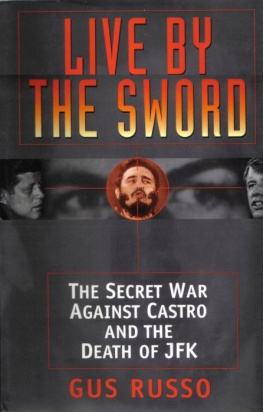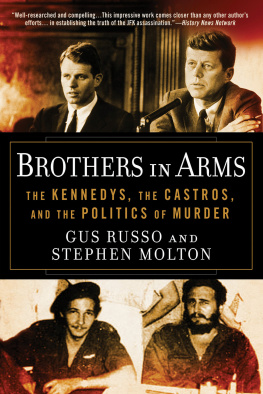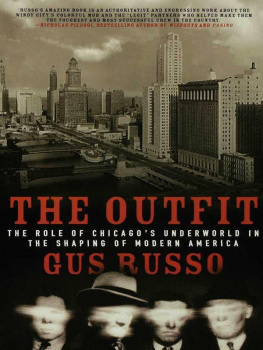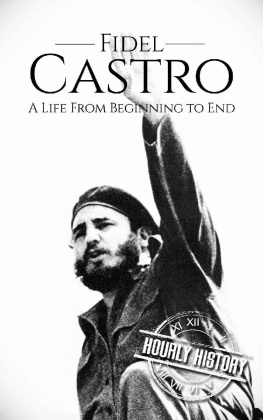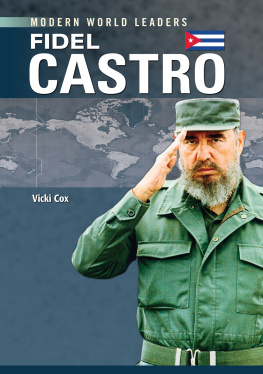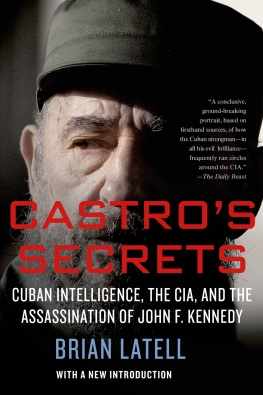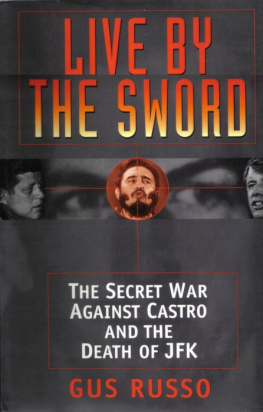

OSWALD
CHAPTER FOUR
THE CHILD IS THE FATHER TO THE MAN
Lee Harvey Oswald was born in October, 1939 in New Orleans, La. the son of a Insurance Salesmen whose early death left a far mean streak of independence brought on by neglect.
Lee Harvey Oswald about himself, from his manuscript The Collective (misspellings in original)
Lee Harvey Oswald is... not... an easy man to explain.
L ee Harvey Oswald, the man who would kill John Kennedy and help produce, unknowingly, the most massive coverup in U.S. history, was nothing less than an enigma. George DeMohrenschildt, one of Oswalds only friends in the later years of his life, once characterized Lee Oswald as the most honest man I knew. At other times, he severely disparaged Oswald as a mixed-up... unstable... semi-educated hillbilly.
On the morning of the assassination, Lee left a note for Marina before going to work. It said that he had left some money on the bureau, and that she should be sure to buy shoes for the children.
is itself simple-minded. But if Oswalds positive qualities impressed some, his negative ones struck a much larger number. The history of his young life provides fertile ground for developing those negative qualities. While it goes without saying that not every difficult childhood engenders a capacity to kill, it does provide a framework in which to understand the adult Oswald.
Who Was Lee Harvey Oswald?
I dislike everybody.
Instability followed. Lees elder brother Robert recalls that family members thought of Lee as a beautiful, adorable child. An aunt who helped raise him would agree. But Lees childhood was a succession of wrenchings from one shaky home to another in New York, Louisiana, and Texas. The fragile youngster grew up in a relentless series of household moves, no less than thirteen of them before he was ten years old. Virtually everyone who knew Marguerite Oswald blames Lees mental state on her dysfunctional parenting.
Marguerite had two other sons, Robert and John Pic, Lees half-brother from an earlier marriage that ended in divorce. Those two other boys may have turned out with a healthier mental profile because, during their formative years, they benefited from having a father figure. Lee wasnt so fortunate. Often plunged into poverty, sometimes on the edge of panic, Marguerite transferred her family from one house or apartment to another, often prison-like, as characterized by one of the brothers. As their living conditions spiraled downward, gloom took over, and rootless young Lee spent hours in lonely brooding. The uncertainty, as Gerald Posner recently wrote with admirable understatement, prevented Lee from ever settling into a single neighborhood and school.
Another mother might have provided more stability, but Marguerite had little emotional reservoir from which to draw to cope with her family problems on her ownand too much disagreeableness to sustain another marriage. She gave her boys mixed signals, alternating between wild abandonment (leaving them with relatives or in orphanages), coddling-and-spoiling, and dominating them. Self-absorbed, and groping for security, she had the emotional development of a spoiled child. Jealous and resentful of people who had better luck and easier lives, the self-pitying woman quarreled with friends and neighbors, blaming others for her troubles and nursing a sense of abject persecution.
Lees brothers would remember their mother as lacking maternal love, but possessing an inclination to try to control them: a woman with whom it was difficult to live. The little extra push she may have given him was a tendency to lie and dissemble. A Secret Service agent who was on the team that held her in protective custody just after the assassination learned that she would help herself get nursemaid jobs by dressing in a uniform with a small Red Crossand bragging about her training. This made Robert Oswald, Lees full brother, laugh, since this nurse never had a day of training in her life.
They could have been describing the adult Lee Oswald.
Campbell also described the Bethlehem Home as a house of horrors that severely affected not only me but also Lee and the other children who were there at the time. The chief horror arrived when the girl residents, upon turning 16, were sexually molested by the priest who headed the orphanage. Terrified of being killed, the girls asked some boys to watch, which they did from a hiding place in a crawl space. It was, Campbell says, the only defense mechanism the girls had.... We would watch to make sure that this individual didnt kill those girls after he raped them. Incredibly, four-and a-half-year-old Lee Oswald was among the group of boys who saw the atrocities first-hand. Witnessing the rapes shattered Lee. Campbell continues:
He was up in the crawl space with two other people and it was demoralizing, it was depressing, it was scary. We cried at the end of it but it was something we had to do because of the girls. They were our friends and we were the only defense they had. I know it affected all of us tremendously. We would go into a state of depression for days and days after... It affected me, it affected Lee, it affected the other two boys. Its indescribable. Youd have to be mere to know how bad it was.
Though she lacked formal training in analysis, as well as the details of his childhood, she arrived at the conclusion that Lees childhood had badly scarred him. She felt this way about Marina too, whom she knew better because they would live together for months at a time. (Lees visits were shorter.) Interviewed in later years, Paine opined:
From what I know now, as somebody whos studied psychology since then, I really feel that both Lee and Marina were abused children. I think that Lee was very injured emotionally early on. He didnt really understandor know or feellove in a normal way... And Marina was very abused as a child. Some of the ways she reacted to himher tolerance of the way he behaved and her thinking it was something shed done wrong or that she wasnt good enoughwas also the behavior of a grown-up whod been abused as a child.
Marguerite moved again with her troubled boy, this time to a one-room apartment in a Bronx basement.
But at least one Fort Worth friend, Pat OConnor, would remember Lee as a normal kid [who] liked to do the normal-type thingsmovies, ball-playing, swimming at swimming holes, spending the night at a friends house. OConnor described Lee and himself as very good friends. He considered Lee to have a good personality and was of the opinion that everybody liked him. He was a regular kid. Youd have never known he didnt have the same aspirations as everyone else had. OConnor also observed a very smart young man...[who] seemed to stand out above the rest of us.
as did others: now he was more withdrawn, more bruised, more arrogant.
She too found no deep-seated mental problem:
He was not a mentally disturbed kid. As a matter of fact, his IQ was better than average. He was just emotionally frozen. He was a kid who had never developed a really trusting relationship with anybody... Our feeling was that unless he got therapy... he would have to be placed in a home, a school for juvenile delinquents. He needed therapy very badly.
Both the probation officer and social worker had involved themselves with young Oswald because of his chronic truancy in the New York junior high school. Absent 47 of 64 school days, he was failing most of his courses. Instead of going to school, where his southern accent and Texas clothes were targets for mockery, he stayed home and read, or prowled the city by subway and on foot.
Next page
